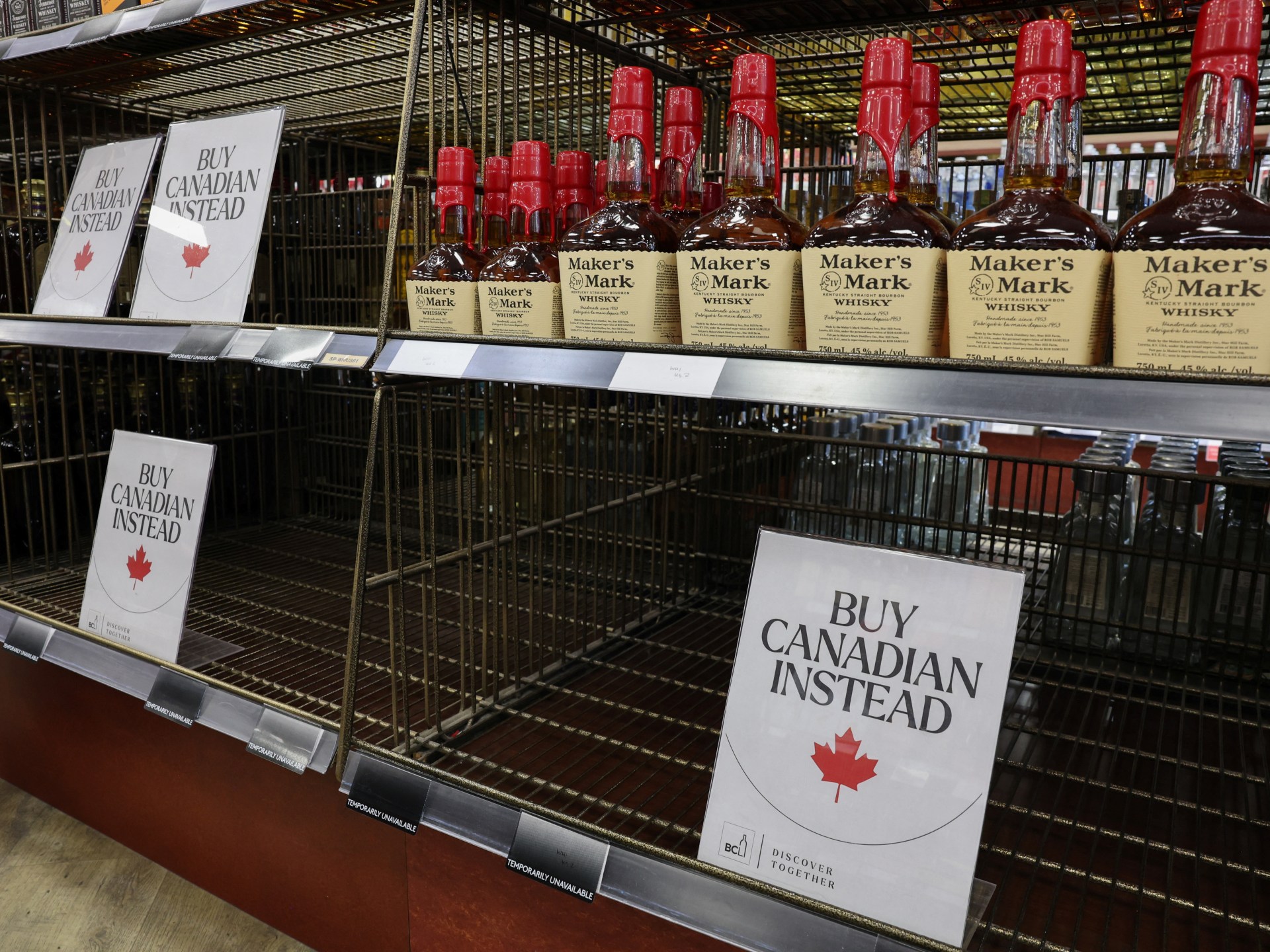Other global financial markets fell after Trump imposed tariffs on Canada, Mexico, and China while world leaders reacted to his threats to impose tariffs on the European Union, which is at its lowest level since President Donald Trump took office two weeks ago.
Following the year’s biggest daily losses on a number of Asian and European bourses due to concerns about an economically damaging trade war, the benchmark S&, P 500 dropped 1.7 percent at the opening bell.
Trump claimed that while his tariffs on the three largest US trading partners were set to go into effect on Tuesday, they might cause some short-term pain for Americans, but that “the US has been ripped off by virtually every country in the world.”
Trump announced later on Monday that he would halt new tariffs on Mexico for a month after agreeing to bolster its border with the US with 10,000 National Guard personnel in order to stop the flow of fentanyl, particularly the drug.
The agreement also includes a US commitment to combat high-powered weapon trafficking, according to Mexican President Claudia Sheinbaum. Just before US tariffs on Mexico, China, and Canada were set to go into effect, the two leaders spoke by phone on Monday.
The two countries will use the monthlong pause to engage in further negotiations, Trump said.
Speaking in Washington, DC, on Sunday after returning from his Mar-a-Lago estate in Florida, Trump indicated that the 27-nation EU would be next in the firing line but did not say when.
“They don’t take our cars. They don’t take our farm products. They take almost nothing, and we take everything from them”, he told reporters.
At a Monday informal summit in Brussels, EU leaders demanded explanations and discussions as well as the need for negotiations. They also reaffirmed that Europe would be prepared to fight back if tariffs were to be imposed.
Trump hinted that Britain, which left the EU in 2020, might be spared tariffs, saying: “I think that one can be worked out”.
The US is the EU’s largest trade and investment partner. According to Eurostat data from 2023, the US had a deficit of 155.8 billion euros ($161.6bn) with the EU in the trade of goods, offset by a surplus of 104 billion euros ($107.6bn) in services.
If a trade war breaks out between Europe and the United States, “the one laughing on the side is China,” according to EU foreign policy chief Kaja Kallas.
Markets swoon
Trump stated on Monday that he had spoken with Justin Trudeau, the prime minister of Canada, and that he would follow up his conversation at 3 p.m. (GMT).
Retaliatory tariffs had been announced for the US by both Canada and Mexico.
According to economists, the Republican president’s plan to impose tariffs of 25% on China and 25% on Canada and Mexico would slow global growth and cause American prices to rise.
The fear is that these tariffs will cause US households to pay higher prices for goods like groceries, electronics, and other kinds of items, putting pressure on the country’s inflation rate, which has largely been declining since reaching its all-time high almost three years ago. The US Federal Reserve started cutting interest rates in September, which helped boost the domestic economy, but inflation is currently accelerating or at an abnormally high level.
Trump argues that tariffs are necessary to boost domestic industries and stop immigration and trafficking narcotics.
Concerns about the repercussions of a trade war were expressed in the financial market on Monday. Tokyo’s stock ended the day nearly 3 percent lower, and Australia’s benchmark, which is frequently used as a proxy trade for Chinese markets, dropped 1.8%. The Lunar New Year holidays saw the closure of the Chinese mainland market.
About lunchtime in Europe, Germany’s DAX index was down 1.8 percent, France’s CAC down 1.9 percent and Britain’s FTSE 100 down 1.5 percent.
The value of the dollar against a soaring dollar was all but lost for the Chinese yuan, the Canadian dollar, and the Mexican peso. US oil prices increased by more than 1% while futures for gasoline increased by nearly 3 percent, with Mexico and Canada serving as the main importers of US crude oil.
Trump’s tariffs would cover almost half of all US imports, making it impossible for the US to close the gap, according to ING analysts.
Other analysts said the tariffs could throw Canada and Mexico into recession and trigger “stagflation” – high inflation, stagnant growth and elevated unemployment – at home.
In Europe, according to Deutsche Bank economists, they are currently adjusting for a 0.5% hit to GDP in the event that Trump imposes 10% tariffs on the EU.
National emergency
Nothing in the White House’s fact sheet was disclosed regarding what Canada, Mexico, and China would need to accomplish in order to receive a reprieve.
Trump vowed to keep the restrictions in place until there is a “national emergency” over fentanyl, a fatal opioid, and illegal immigration into the US, with an end to what he called the “national emergency.”
China called the situation “Fentanyl America,” declared it would challenge the WTO’s tariffs, and open up discussions, and opened the door to discussion.
Canada stated that it would file a lawsuit against the tariffs under the supervision of international organizations.
New tariffs on cars produced in Canada and Mexico would be particularly unfair to automakers because parts from these countries’ extensive regional supply chains could cross borders several times before being finalized. Ford and General Motors shares fell 4 percent to 5 percent.
Shares in Volkswagen, Porsche, Stellantis and Daimler Truck all fell by about 5 percent to 6 percent in European trading on Monday.
Source: Aljazeera

Leave a Reply